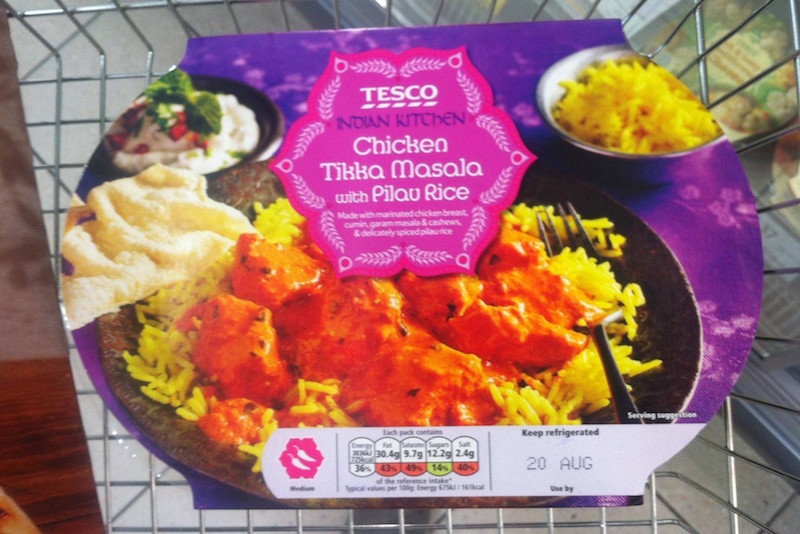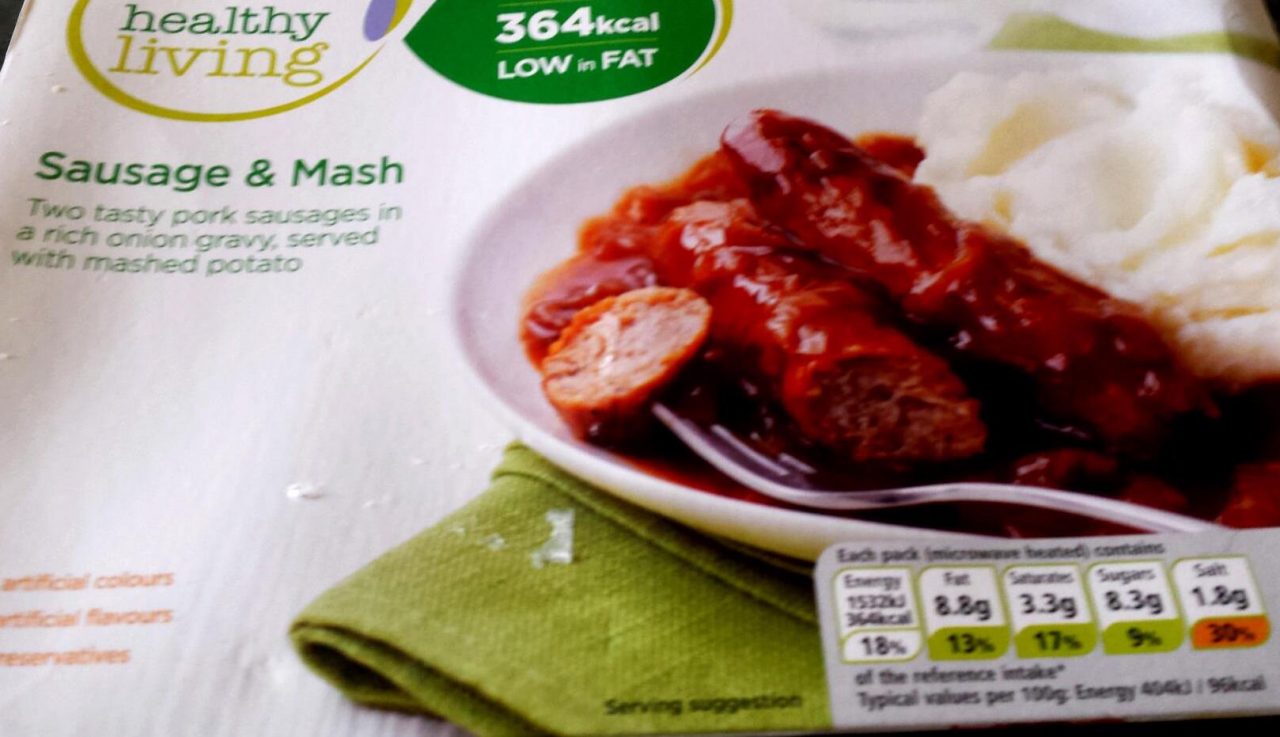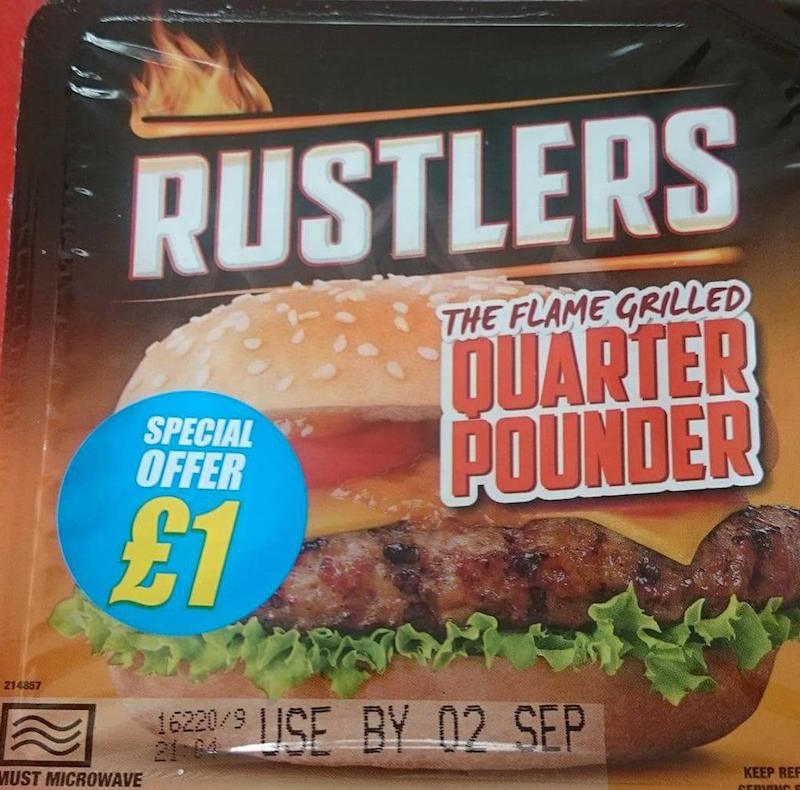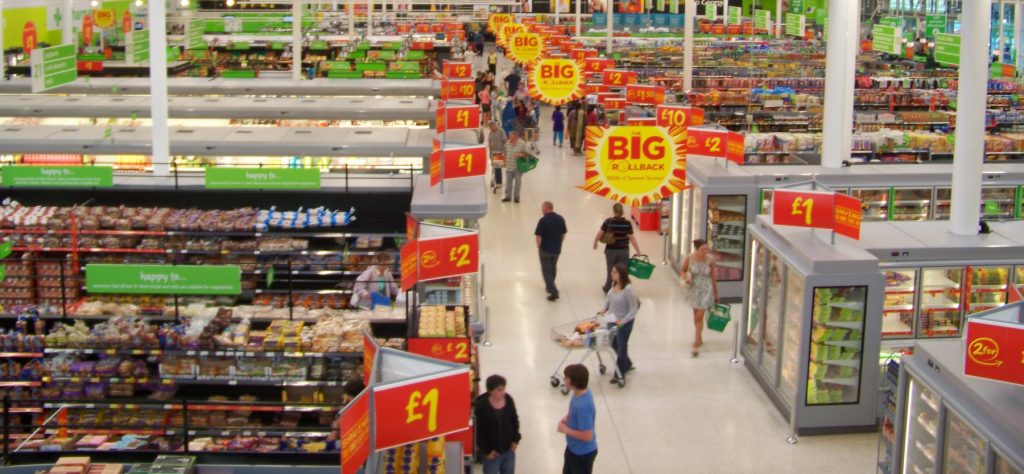Convenience food is huge in the UK. From frozen pizzas to microwave roast dinners, British consumers just can’t get enough. It seems throwing a ready meal in the shopping trolley is the easiest answer for a lot of people – so many people that the industry is worth $3bn in the UK each year, a figure that’s set to grow another 20% by 2017.
The catch? Well, these foods have plenty of hidden costs. So I thought I’d try a few to find out just what they are. First up, Chicken Tikka Masala...

We’ve all been told that ready meals are unhealthy and full of chemicals. Yeah, yeah, we know. But the list of ingredients in this one doesn’t look so bad at first glance. But take a closer look, and it’s a long way from home cooking.
The one I bought was made with rapeseed, palm and soya oils – almost only ever found in processed food because they’re cheap. These oils are also really bad for you. Oh, and palm oil production is risking the future of our rainforests.
The main ingredient, chicken, came all the way from Thailand. Is Thai chicken somehow better? Probably not. It’s just often cheaper for companies to bulk-buy ingredients from poorer countries, where wages are lower – even with the cost of then . Unsurprisingly, all that long-distance travel, freezing and storage in huge warehouses can suck the flavor (and nutrients) right out of food. And that’s where all that lovely salt, a favorite condiment for processed food producers, comes in.
I don’t know about you but I'm not sure how I feel about eating food that’s clocked up more air miles than I have. Even when it's been coated in some nice, reassuring packaging for the health-conscious shopper.

The Sausage & Mash I picked up was low in fat and had no artificial colors or flavors. What more do you want?
Trouble is, the stuff they use to replace fat with – like sugar, for example – might be even worse for you, and won't necessarily help you lose weight either. Plus, the calorie count is low because the portion size tends to be relatively small. Seriously, an hour after eating this kind of thing you’ll probably be reaching for a sandwich.
And don’t think too hard about exactly what’s in those sausages. Although it can’t be as bad as this…

Everyone knows that microwaving a burger is unnatural and wrong but you can buy them EVERYWHERE! Mine cost £1 ($1.3)!
There are laws about how much actual meat has to be in a burger if manufacturers want to call it a burger. This one is 85% beef – reassuringly well over the ‘standard beef burger’ limit of 62% - so actually, not too bad.
But it gets worse if you buy ‘economy’ beef burgers (nothing to do with this publication), which only have to contain a measly 47% beef. In this particular burger, it’s the other ingredients I found more worrying. The long list includes such kitchen cupboard staples as dextrose, triphosphate, smoke flavoring, potassium sorbate and modified maize starch. Lovely. And no, I have no idea what those things are either.
And then there’s the classic frozen pizza...
After a long day at the office or a long night at the pub (or both), it’s always there for you, like an old friend. Yum.

Actually, I went for a ‘chilled pizza’, because it's got to be healthier than frozen one, right?
Actually, not necessarily. Either way, I suspect I’d probably get more vitamins and nutrients by eating the cardboard box it came in. Although, all that packaging creates a mountain of waste. In fact, the UK’s love of convenience food is making it one of the worst countries in Europe for sending waste to landfill.
But as long as everyone’s short on time, convenience foods will keep flying off the supermarket shelves. They’re just so, well… convenient. And for the manufacturers, it makes economic sense to meet the demand for salty, fatty, plastic-wrapped food like this, because people buy lots of it, all the time.
Plus, processed, packaged food tends to have higher . A company makes more money out of a simple food like corn, for example, when it’s processed and sold as a branded cereal. The industry calls this ‘adding value’. But is that value for them or for us? I’ll leave you to ponder that question the next time you’re tucking into your microwave Doner Kebab or Full English Breakfast from a can!
Check out the rest of Economy Explores: Food




